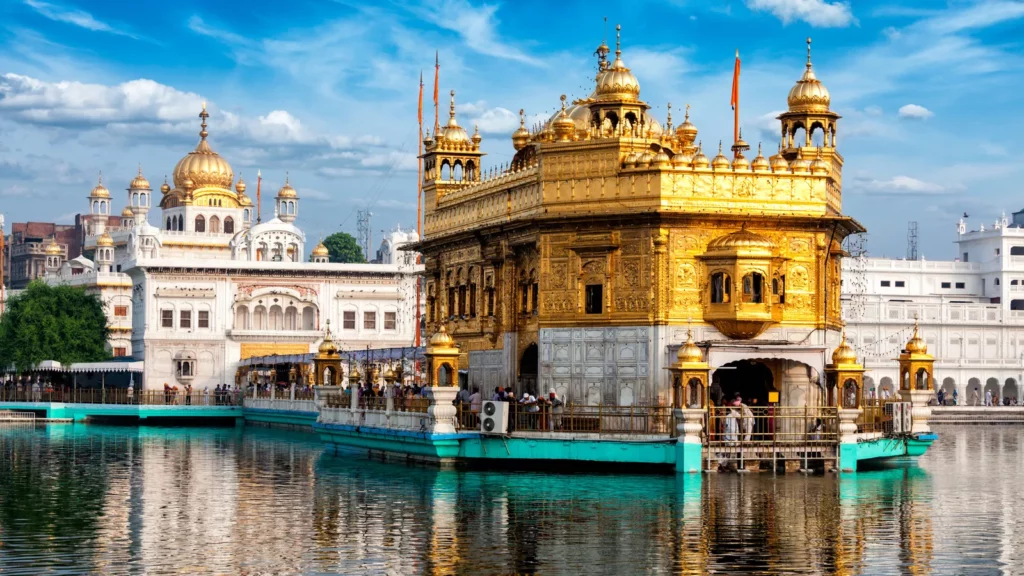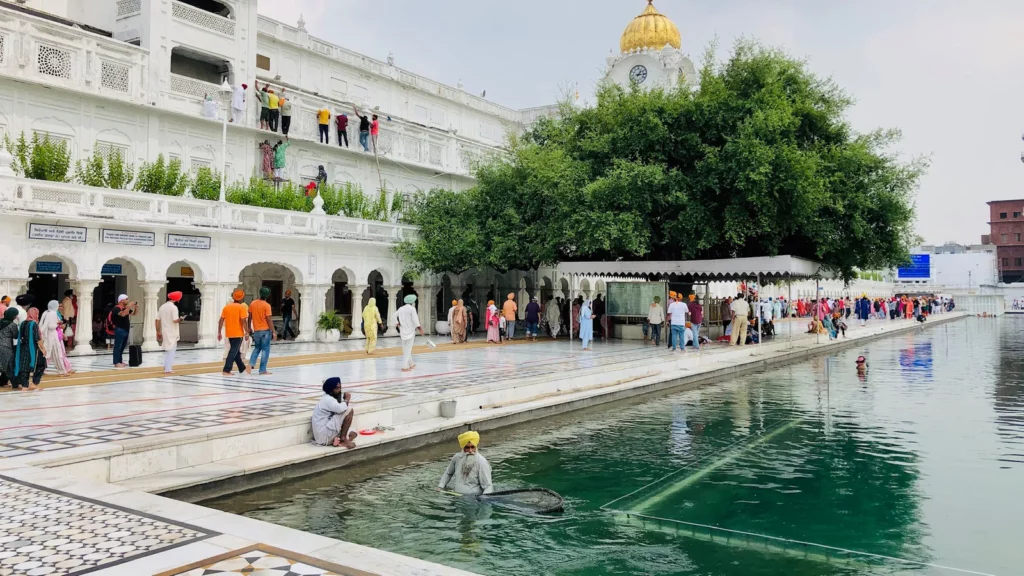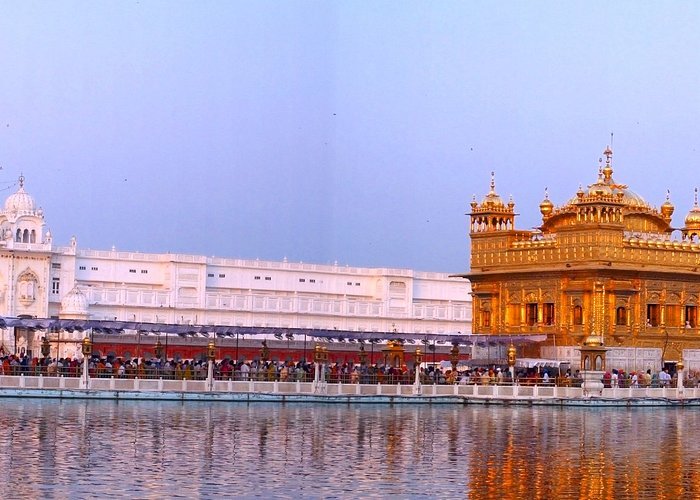Amritsar is a city located in the state of Punjab in northern India. It is one of the most important cities in the Sikh religion and is home to several significant Sikh sites, including the Golden Temple, also known as Harmandir Sahib.
The Golden Temple is the holiest gurdwara (Sikh place of worship) and attracts millions of visitors from around the world each year. It is a beautiful structure covered in gold and surrounded by a sacred pool known as the Amrit Sarovar. The temple complex also includes other buildings, a langar hall (community kitchen) where free meals are served to all visitors, and accommodations for pilgrims.

Apart from the Golden Temple, Amritsar has other notable attractions as well. The Jallianwala Bagh, a public garden, is a memorial to the tragic massacre that took place there in 1919 during the British colonial era. It serves as a reminder of India’s struggle for independence.
Another significant site in Amritsar is the Wagah Border, which is the international border between India and Pakistan. Every evening, a flag-lowering ceremony takes place here, attracting a large crowd. It is a highly patriotic and energetic event showcasing the border guards from both countries.
Amritsar is also known for its vibrant street markets, where you can find traditional Punjabi clothing, handicrafts, and local delicacies. The city has a rich culinary heritage, with dishes like Amritsari Kulcha, Chole Bhature, and Makki di Roti with Sarson da Saag being popular among locals and visitors alike.

However, at the heart of Amritsar’s magnanimous and open character is a dark contemporary history that has played a crucial part in shaping the city’s – as well as Sikhism’s – self-conception and dynamics.
As the second-biggest city in Punjab, Amritsar was often a hotspot for gatherings and protests during British colonial rule. One such event took a brutal turn in 1919, when a British general gave orders to fire upon a peaceful meeting of people, which came to be known as the Jallianwala Bagh Massacre, where up to 1,500 people died.
Additionally, when the British hastily left India in 1947, the violence that engulfed Indian Partition heavily affected Amritsar due to the city’s location next to the newly drawn border. (Due to this history, India’s first and only Partition Museum opened in Amritsar in 2017.)
In 1984, Amritsar once again became the site of tragic events. A momentous military operation ordered by Prime Minister Indira Gandhi involved the storming of the Golden Temple by military forces to weed out secessionists, the jitters of which are felt even today. It led to the assassination of Gandhi by her two Sikh bodyguards some months later, and a massacre of thousands of innocent Sikhs across India in the subsequent days.




